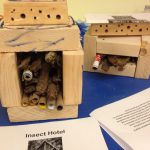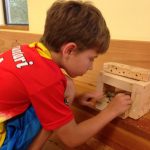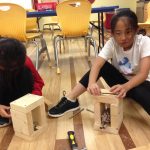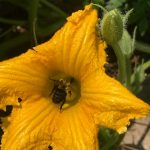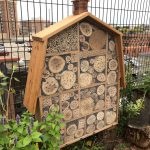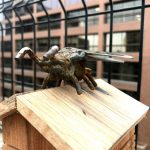- Home Test 625
- Home
- Visit
- Exhibits
- Programs & Events
- Membership
- Support
- Give the Gift of Play
- About
- Checkout
- Cart
- Utility
- Birthday Party Cancellation Form
- Phone Call
- Request for a Facility Rental Agreement
- Privacy Policy
- American Girl Benefit Sale
- Party Catering Form
- Event Date Request Form
- Camp Food Orders
- Flourish!
- IA24 Evening Event RSVP
- Development Events RSVP
- Development Tour
- Folder Request Form
- Development Team Test Page
- Logout
- Birthday Parties
New Hotel Opens on Museum Roof — For Insects!
In Downtown Madison, the planning of a new hotel can be fraught with controversy and lengthy negotiations between the city and private builders. The issues can take years to resolve before ground is broken: Will TIF money be used? Will the hotel be granted a variance to build more stories than code allows?
So it’s remarkable that Madison Children’s Museum has been able to quickly plan and build a hotel—using no public funding—delivering the project on time and on budget. Or it might be most remarkable that this Insect Hotel caters to those with six or more legs!
Insect hotels are a concept that is rapidly catching on in urban gardens and green spaces. Made out of natural materials, insect hotels have plenty of hidey-holes and little crevices where bugs can find a safe and warm shelter. Kids attending one of the museum’s summer camps created mini-insect hotels (pictured below) as one of their building projects.
- Creating mini-insect hotels have been part of programs at the museum’s summer camps.
Insects are an important part of the ecosystem, even in an urban environment. They pollinate our urban gardens, get rid of food scraps—and some even control the populations of less welcome neighbors like mosquitos. But as Madison builds densely to maximize every inch of our urban landscape, we eliminate the safe places for our insect friends.
In particular, insect hotels benefit solitary bees. When thinking of bees, hives and honey generally come to mind, but the majority of the bee population is made up of individual bees. These solitary bees do not live in colonies or hives, but rather burrow in the ground or live in small holes in wood or other natural materials. Over 500 bee species live in Wisconsin, and many of these are threatened or endangered. Last year the endangered Rusty Patched Bumblebee was photographed by a pedestrian doing citizen science on Hamilton Street near the museum, so we know these bees live in our urban habitat. We just need to give them good housing to do so!
This fall Madison Children’s Museum added an Insect Hotel to our Pleasant T. Rowland Rooftop Ramble and will be introducing education programming about bees and other pollinators important to our ecosystem. The Rooftop Ramble is one of the most popular areas of the museum. It consists of a green rooftop with a four-season garden where kids can experience the great outdoors in the heart of downtown Madison. With the addition of the Insect Hotel, visitors will learn about the important contributions that insects make to our health, our food supply, and our environment.
The insect hotel “opens for arrivals” during Free Family Night on Wednesday, September 19, 2018. The theme of the night is Entomology Exploration. In addition to the grand opening and ribbon cutting of the insect hotel at 5:30 p.m., there will be Insect Art in the Art Studio from 6–7:30 p.m. and a special Learn about Insects program on the roof, also from 6–7:30 p.m.
Steve Zanoni is general manager of the Madison Concourse Hotel & Governor’s Club, down the block from the museum. We asked him how he felt about a new, competing hotel opening so close by. “Of course we always need to watch the competition,” said Zanoni. “And we will probably lose some of our customers who are bees; that’s unavoidable and unfortunate. But human visits to Madison are increasing—I’m confident we can stay in business. Badger fans or wedding guests staying for the weekend are more likely to schedule a day trip to the museum rather than try to cram themselves into the tiny Insect Hotel overnight, which, frankly, does not offer the quality amenities of our hotel.”
The new Insect Hotel and the accompanying education programs are made possible by the generous support of American Transmission Company, with additional support from the Dane County Environmental Council.

